Hair loss affects over 80 million Americans. It’s so common, in fact, that by the age of 35, two-thirds of men will experience some form of hair loss. And it’s not just men – 40% of Americans who experience hair loss are women.
Since so many people are affected, the American Academy of Dermatology has declared August to be National Hair Loss Awareness Month. National Hair Loss Awareness Month’s goal is to educate those suffering from hair loss on the causes and treatments of their issue, and also to empower those with hair loss to reach out and realize that they are not alone in their issue. In the spirit of providing education about hair loss, we at Toppik are sharing information on types of hair loss, causes, treatments, and tips for dealing with hair loss.
Common Types of Hair Loss

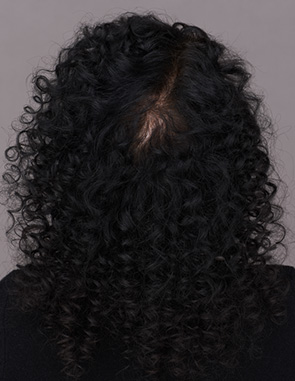 Androgenic Hair Loss
Androgenic Hair Loss
The most common type of hair loss, also known as male or female pattern baldness. In 95% of male hair loss cases, the cause is androgenic hair loss. Since androgenic hair loss is genetic, it is unfortunately not preventable.
People with androgenic hair loss have hair follicles that are sensitive to a hormone called dihydrotestosterone or DHT. Exposure to DHT causes the follicles to shrink and the hair to fall out. In men, androgenic hair loss can show up as a receding hairline or thinning on the crown. For women, androgenic hair loss results in the widening of the hair part or a smaller ponytail.

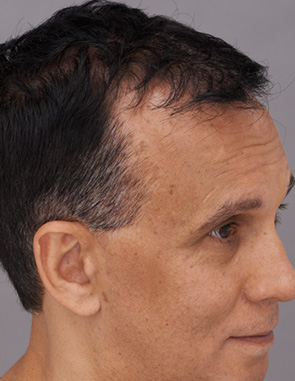
Involutional Alopecia
Involutional alopecia is the gradual thinning of hair due to age. Over the years, more hair follicles go into their resting phase, resulting in fewer hairs growing at any given time. Like androgenic alopecia, this type of hair loss is not preventable.


Alopecia Areata
Alopecia areata is an autoimmune disease that results in hair loss on both the scalp and body. While the cause is little understood by scientists, alopecia areata is usually not permanent.

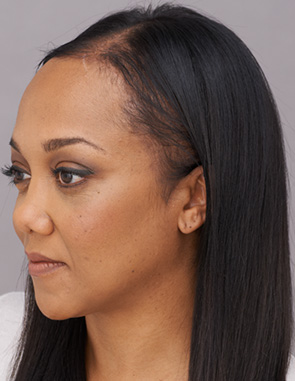
Traction Alopecia
Traction alopecia is caused by over-styling and pulling the hair, resulting in the damage of hair follicles and hair loss. In some cases, traction alopecia can result in permanent hair loss. Traction alopecia is most common in women who wear hair extensions or braids, which can pull on the hair and cause damage to the follicles.

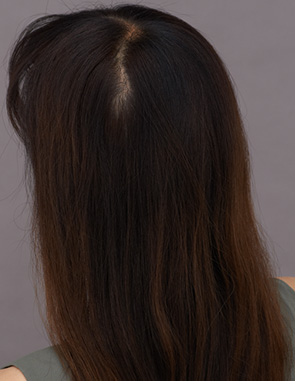
Telogen Effluvium
In this type of hair loss, abnormal amounts of hair suddenly switch from the growing or resting phase to the shedding phase. Telogen effluvium is usually caused by a stressful event, such as a major surgery, drastic weight loss, or giving birth. Although hair may fall out in clumps, it will eventually grow back when stress levels return to normal.
Hair Loss Treatments
Hair loss treatments are a billion dollar industry. Some treatments provide temporary regrowth, while others offer a more permanent (and invasive) solution. These are the main treatments for hair loss:


Minoxidil
Minoxidil, otherwise known as Rogaine, is a topical solution to hair loss. While Rogaine does work for many people, the results are not permanent. As soon as treatment with Minoxidil ends, the regrown hair will fall out.


Finasteride
Finasteride, better known as Propecia, is the only FDA-approved oral treatment for hair loss. However, the medication can have some unpleasant side effects, including impotence, dizziness, and headaches. Like minoxidil, the effects wear off when treatment is stopped.

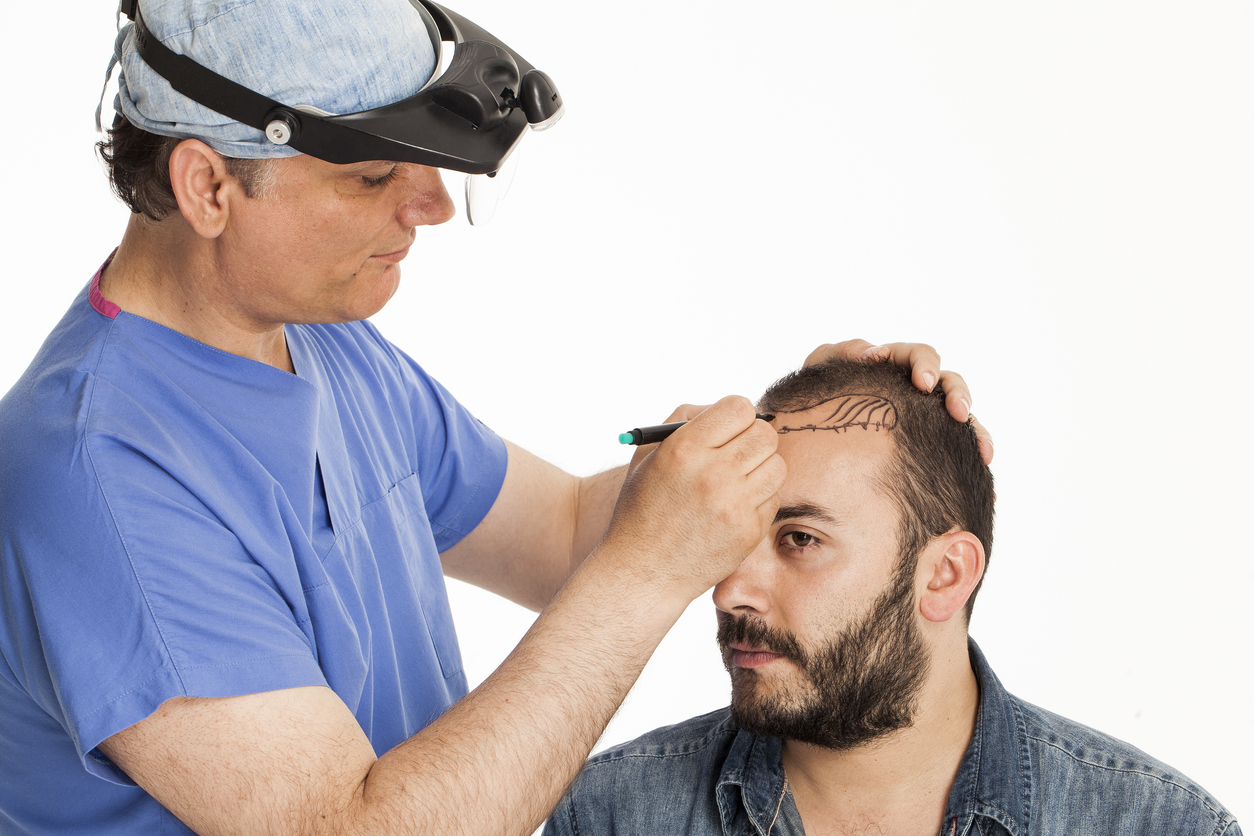
Hair Transplant
Surgical hair restoration performed by a qualified surgeon can produce astoundingly natural-looking results. However, there are very few hair restoration surgeons with the skills necessary to perform a realistic hair transplant, and the procedure itself can be quite expensive and invasive.
How to Make Your Hair Look Thicker
Even without seeking treatment, there are a few tricks you can use to prevent further hair loss and make your hair look thicker:
Take proper care for your hair
If you’re concerned about thinning hair, it’s important to be extra careful with the hair you do have. Babying your hair will prevent breakage, which will further exacerbate the situation.


Change your styling routine
Research products that thicken the shaft of your hair, effectively creating the appearance of fuller hair. For example, Toppik’s Hair Fattener coats the each strand in a concentrated keratin formula, resulting in thicker-looking hair.
Hide Scalp Show-Through
If scalp show-through is your concern, try Toppik Hair Building Fibers. These fibers are made from natural keratin and cling to your existing hair to make your hair look thicker and fuller. They stay in until you shampoo your hair, so you can maintain your new look as long as you want. Here’s how they work:
Step 1. Dry and style hair as usual.

 Step 2. Shake or spray Toppik Fibers onto thinning areas.
Step 2. Shake or spray Toppik Fibers onto thinning areas.

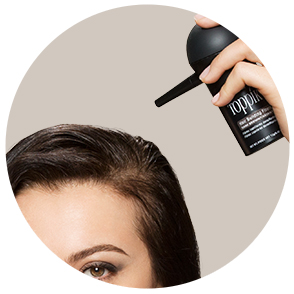 Step 3. Gently pat hair to disperse fibers.
Step 3. Gently pat hair to disperse fibers.


Step 4. If desired, lightly comb, brush or style your hair after applying Toppik Hair Building Fibers.


This National Hair Loss Month, we want to remind you that if you’re suffering from hair loss that you’re not alone. Although it may seem like no one else is struggling with thinning hair, keep in mind that hair loss is something that most people experience at one point or another in their lives. While there aren’t always ways to fix the situation, there are ways to disguise hair loss if it bothers you. The most important thing to remember, however, is that you’re much more than your hair! This Hair Loss Month, don’t let thinning hair define you.

